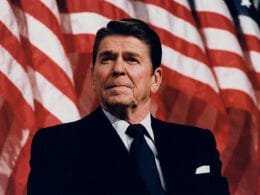Thomas Sowell’s Work
Thomas Sowell is a prominent economist, social theorist, and author renowned for his incisive analysis of economic issues, particularly concerning wealth and poverty. With a career spanning several decades, Sowell has made significant contributions to the understanding of how economic policies affect social structures. His works often delve into the intricate dynamics between economic principles and the sociopolitical landscape, addressing the underlying factors that perpetuate cycles of poverty and wealth across nations.
One of Sowell’s seminal works, “Wealth, Poverty, and Politics,” encapsulates his lifelong exploration of these critical themes. In this book, he examines the historical and cultural contexts that contribute to disparities in wealth and poverty within various societies. By employing a multifaceted approach, Sowell underscores that economic outcomes are greatly influenced by a myriad of factors, including geographical conditions, political institutions, and cultural attitudes. This perspective challenges conventional wisdom that often attributes economic disparities solely to systemic injustices or market failures.
The significance of “Wealth, Poverty, and Politics” lies not only in its rich empirical analysis but also in its practical implications for policymakers. Sowell argues that understanding the root causes of poverty requires a comprehensive examination of history and context rather than simplistic solutions. His ability to articulate complex ideas with clarity makes this book an essential read for those interested in the intersection of economics and social policy. Furthermore, the themes explored in this work resonate with Sowell’s broader scholarship, which continually emphasizes the importance of empirical evidence in evaluating social and economic theories. By weaving together historical insights with rigorous analysis, Sowell’s contributions provide readers with a robust framework for understanding poverty and wealth, not just in a national context, but on an international scale.
Defining Wealth and Poverty
In his insightful exploration of wealth and poverty, Thomas Sowell presents a comprehensive understanding that transcends mere economic definitions. He illustrates that wealth is not solely about monetary resources, but rather an intricate tapestry crafted from cultural, social, and political elements. Similarly, poverty is depicted not just as the absence of financial resources, but as a complex state influenced by various societal dynamics. This multifaceted approach enables a clearer view of the socio-political landscapes that shape individuals’ perceptions and experiences of wealth and poverty.
Sowell distinguishes between absolute poverty, which refers to a lack of essential resources required for survival, and relative poverty, which is defined in relation to the standard of living in a specific society. Absolute poverty typically indicates a dire lack of basic necessities, while relative poverty highlights disparities within a population, addressing how individuals perceive their situation compared to others. This differentiation is essential as it influences public policy decisions and interventions aimed at alleviating poverty.
Understanding these distinctions allows policymakers to formulate effective strategies for addressing poverty. Moreover, it encourages individuals and communities to adopt a more nuanced perspective towards wealth. Recognizing the interplay between culture and economics helps to counter simplistic narratives that often overlook these critical influences. For instance, local norms and values can dictate the means through which wealth is acquired and its significance within different communities.
Thus, Sowell emphasizes that wealth and poverty are not static conditions but dynamic realities shaped by broader socio-political factors. As we navigate discussions on economic disparity, it is crucial to consider these complexities to foster informed dialogue and effective solutions. This holistic understanding serves not only to clarify definitions but also to challenge prevailing assumptions regarding wealth and its distribution in society.
Historical Context of Wealth Distribution
The historical evolution of wealth distribution has been shaped by diverse cultural and governmental approaches, impacting current economic landscapes across the globe. Various societies throughout history have devised differing systems for wealth accumulation and management, which continue to influence the disparities we observe today. The dynamics of wealth distribution can be traced back to ancient civilizations, which established foundational economic practices that persist in modified forms in contemporary societies.
In numerous cultures, wealth was often concentrated in the hands of a few, primarily due to land ownership and agricultural practices. For example, feudal systems established in medieval Europe created rigid class structures where lords controlled extensive land holdings while peasants worked for their subsistence. This concentration was not unique to Europe; several non-Western societies, including those in Asia and Africa, demonstrated similar patterns, often entwining wealth with social hierarchies and governance structures.
Governments also played a pivotal role in shaping wealth distribution through policies that favored specific classes or industries. The mercantilism prevalent in the early modern period prioritized national wealth accumulation through trade and protectionism, often benefitting elites at the expense of broader populations. In contrast, revolutionary movements, such as socialism in the 20th century, emerged as responses to inequitable wealth distribution, advocating for collective ownership and redistribution of resources. However, the outcomes of such movements varied significantly, with some leading to improvements in wealth equity, while others resulted in further disparities.
Understanding the historical context of wealth distribution helps illuminate the factors contributing to current economic inequalities. The interplay between cultural values, government policies, and historical events has resulted in distinct pathways of wealth accumulation that shape modern economies. Recognizing these historical patterns is essential for comprehending today’s disparities in wealth across nations and cultures.
Cultural Influences on Economic Outcomes
In his examination of economic disparities, Thomas Sowell asserts that culture exerts a profound influence on economic outcomes across different communities and nations. The author posits that the values, beliefs, and attitudes entrenched within a culture can significantly shape the behaviors and aspirations of individuals, ultimately determining their economic success or failure. These cultural components can manifest in various ways, notably through attitudes towards work, education, and entrepreneurship, leading to distinctive economic trajectories.
Sowell provides compelling case studies from diverse geographic and historical contexts to support his argument. For example, he discusses how certain immigrant groups, such as Jews and Chinese, have historically prioritized education and hard work. These cultural commitments have enabled these communities to achieve remarkable socio-economic advancements despite facing significant barriers and discrimination. In contrast, other groups may face cultural hurdles that devalue educational attainment or work ethic, which can perpetuate cycles of poverty and hinder economic mobility.
Additionally, Sowell emphasizes the critical role of community networks in fostering economic outcomes. Communities that encourage collaboration, education, and entrepreneurship tend to cultivate environments where economic innovation can thrive. Conversely, cultures that discourage individual initiative or view entrepreneurship with skepticism can dampen economic growth and reinforce dependency on external assistance.
These observations underscore the necessity of considering cultural factors when analyzing economic disparities. While many argue that systemic structures dictate economic outcomes, Sowell suggests that cultural attitudes are equally if not more critical. Addressing these cultural dimensions may provide pathways to enhance economic performance and empower communities to overcome economic challenges. Thus, understanding the interplay between culture and economic performance is vital for formulating effective policies aimed at reducing poverty and enhancing wealth across diverse populations.
Political Systems and Economic Outcomes
The interplay between political systems and economic outcomes is a crucial aspect of understanding wealth and poverty on a global scale. In his analysis, Thomas Sowell delineates how various governance frameworks influence economic productivity and wealth generation. In particular, he distinguishes between two dominant political ideologies: capitalism and socialism. Capitalism, characterized by private ownership and free market principles, tends to foster innovation, competition, and ultimately, wealth creation. Conversely, socialism, which emphasizes state control over resources and production, can often lead to reduced economic incentive and, consequently, diminished prosperity.
Sowell supports his arguments with an array of case studies that illustrate the diverse economic trajectories undertaken by countries across the globe. For instance, he examines nations that have adopted capitalist principles and how their economies flourished as a result of lower regulation and higher consumer choice. Examples include the United States and several East Asian economies, which have experienced significant wealth accumulation due to their capitalist structures. These systems create environments where entrepreneurs are motivated to take risks, leading to technological advancements and job creation.
On the other hand, Sowell highlights the challenges faced by nations that have embraced socialist policies. Countries such as Venezuela serve as a cautionary tale, illustrating how government intervention and control can stymie economic growth. By implementing regulations that limit private enterprise and remove incentives for production, these governments often find themselves in cycles of poverty and economic decline. Sowell posits that the political system in place can profoundly affect the distribution of wealth and the prevalence of poverty within a nation, ultimately shaping the lives of its citizens.
Globalization and Its Impact on Wealth and Poverty
Globalization, defined as the increasing interconnectedness of economies and cultures, has profoundly influenced wealth distribution and poverty levels across the globe. Thomas Sowell examines the complexities of globalization, elucidating both its beneficial and detrimental effects. On one hand, globalization has the potential to reduce poverty by providing access to larger markets, enhancing competition, and fostering technological advancements. Through these mechanisms, countries can experience economic growth, which, in turn, can lift populations out of destitution.
For instance, nations like China and India have seen significant improvements in living standards attributable to their integration into the global economy. These countries have embraced exports, attracting foreign investments and creating jobs. As a result, hundreds of millions of people transitioned from poverty to a more prosperous lifestyle. The augmentation of global trading relationships has empowered developing nations, allowing them to leverage their resources and provide better opportunities for their citizens.
Conversely, globalization carries economic challenges that can exacerbate inequality and create new forms of poverty. As markets expand, local industries may find it difficult to compete with larger, multinational corporations that dominate the global stage. This can lead to job losses in certain sectors and regions, contributing to economic displacement. Furthermore, while urban areas often reap the benefits of globalization through investment and development, rural communities may be left behind, increasing the wealth gap within nations.
The experience of various countries highlights that the impacts of globalization are not uniformly positive or negative. In Latin America, for example, while some countries have benefited from trade agreements, others struggled to adapt, revealing the nuanced nature of globalization’s effects on wealth and poverty. In summary, understanding the duality of globalization is crucial for policymakers aiming to maximize its benefits while mitigating its adverse consequences.
The Role of Education in Economic Mobility
Education serves as a critical vehicle for economic mobility, shaping individuals’ opportunities and capabilities. In his exploration of wealth and poverty, Thomas Sowell underscores the profound connection between educational attainment and economic outcomes. Higher levels of education often correlate with increased earning potential and improved standards of living. Conversely, individuals lacking access to quality education may find themselves trapped in cycles of poverty, with limited prospects for advancement.
However, the journey toward achieving economic mobility through education is not uniform. Systemic barriers persist, often inhibiting equitable access to high-quality educational resources. Socioeconomic status, geographical location, and racial disparities can significantly impact educational opportunities. As Sowell discusses, certain communities may face inadequate school facilities, underqualified teachers, and insufficient funding, which ultimately hinder students’ academic growth and future opportunities. These factors contribute to a widening gap in educational achievement, perpetuating cycles of poverty for affected populations.
Reforms in educational systems have been proposed as solutions to enhance access and ensure equitable opportunities for all. Priority initiatives include increased funding for disadvantaged schools, curriculum improvements, and support programs that facilitate student engagement and retention. Sowell advocates for policies that emphasize school choice, allowing families to direct their children to higher-performing educational institutions, regardless of their socioeconomic backgrounds. This approach aims to empower families and create competitive environments that foster academic excellence.
Moreover, targeting early childhood education programs can significantly alter economic mobility trajectories. Research indicates that educational investment at a young age yields long-term benefits in both cognitive development and social skills. Ultimately, the interplay between education, wealth, and poverty remains intricate, necessitating concerted efforts to dismantle barriers and promote systemic reforms that enable equitable access to learning opportunities for all individuals.
Debates on Welfare and Social Programs
In his analytical exploration of welfare and social programs, Thomas Sowell presents a compelling critique that raises important questions about the effectiveness of these initiatives in addressing poverty. Sowell contends that, rather than alleviating conditions of distress, many welfare programs may inadvertently perpetuate cycles of poverty. This assertion stems from his observation that assistance often comes with a set of conditions and limitations that may not align with the complexities of individual circumstances.
Sowell emphasizes that welfare programs can create dependencies rather than empower individuals to achieve self-sufficiency. He argues that when individuals rely on government assistance for their basic needs, it can reduce their motivation to seek employment or pursue education. This, in turn, can foster a mindset of dependency, which can be difficult to escape. As the system is designed to provide support, some argue that it inadvertently disincentivizes personal responsibility and initiative, which are crucial for improving one’s economic standing.
Moreover, Sowell discusses alternative approaches to social issues that may yield more effective results. He posits that solutions should be rooted in individual initiative, community support, and private sector engagement rather than solely through government intervention. By fostering an environment where economic mobility is encouraged, individuals may be more likely to pursue educational opportunities and gain skills necessary for the job market, breaking the cycle of poverty.
The discussions surrounding welfare programs are multifaceted, with proponents highlighting their role in providing essential support to the vulnerable. However, Sowell’s perspective invites policymakers and the public to carefully evaluate the implications of such programs, urging a thoughtful re-examination of welfare strategies to ensure they serve their intended purpose without compromising individual agency or economic viability.
Conclusion: Lessons and Implications
In navigating the intricate dynamics of wealth, poverty, and politics as presented by Thomas Sowell, several key lessons emerge that possess significant implications for policymakers and society as a whole. Sowell emphasizes that economic outcomes are often a product of historical contexts, cultural factors, and policy decisions, underscoring the need for a comprehensive understanding of these elements. Recognizing the multifaceted nature of wealth disparities enables policymakers to devise more nuanced and effective solutions, rather than relying on simplistic or reactionary measures.
Furthermore, Sowell highlights the importance of empirical evidence in shaping economic policies. By drawing from historical case studies and observable data, stakeholders can better understand the consequences of various policy choices. This analytical approach is fundamental in crafting strategies that address the root causes of poverty, rather than merely treating its symptoms. As such, the significance of informed decision-making becomes paramount, both for local governance and for international relations.
Moreover, Sowell’s exploration of individual agency and cultural influences sheds light on how communities can empower themselves to overcome economic challenges. Encouraging a culture of self-determination, personal responsibility, and community engagement can foster resilience among marginalized groups, paving the way for substantive economic advancements. In this light, wealth creation becomes not solely a function of external resources but inherently tied to the attitudes and behaviors of individuals and communities.
Ultimately, a deeper comprehension of the intricate interplay between wealth, poverty, and politics is crucial for developing effective policies that seek to bridge economic divides. Policymakers and societal leaders are encouraged to reflect on Sowell’s insights, recognizing that tailored, evidence-based solutions, grounded in historical realities and informed cultural contexts, are essential for addressing the challenges of poverty and promoting sustainable prosperity across national and international landscapes.




